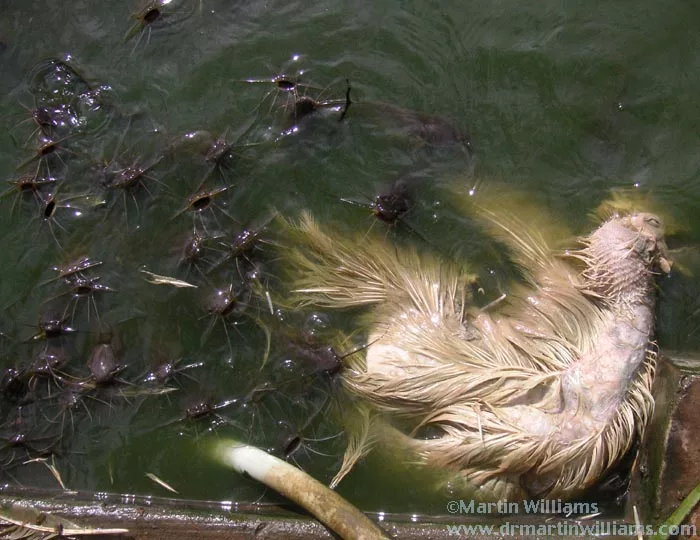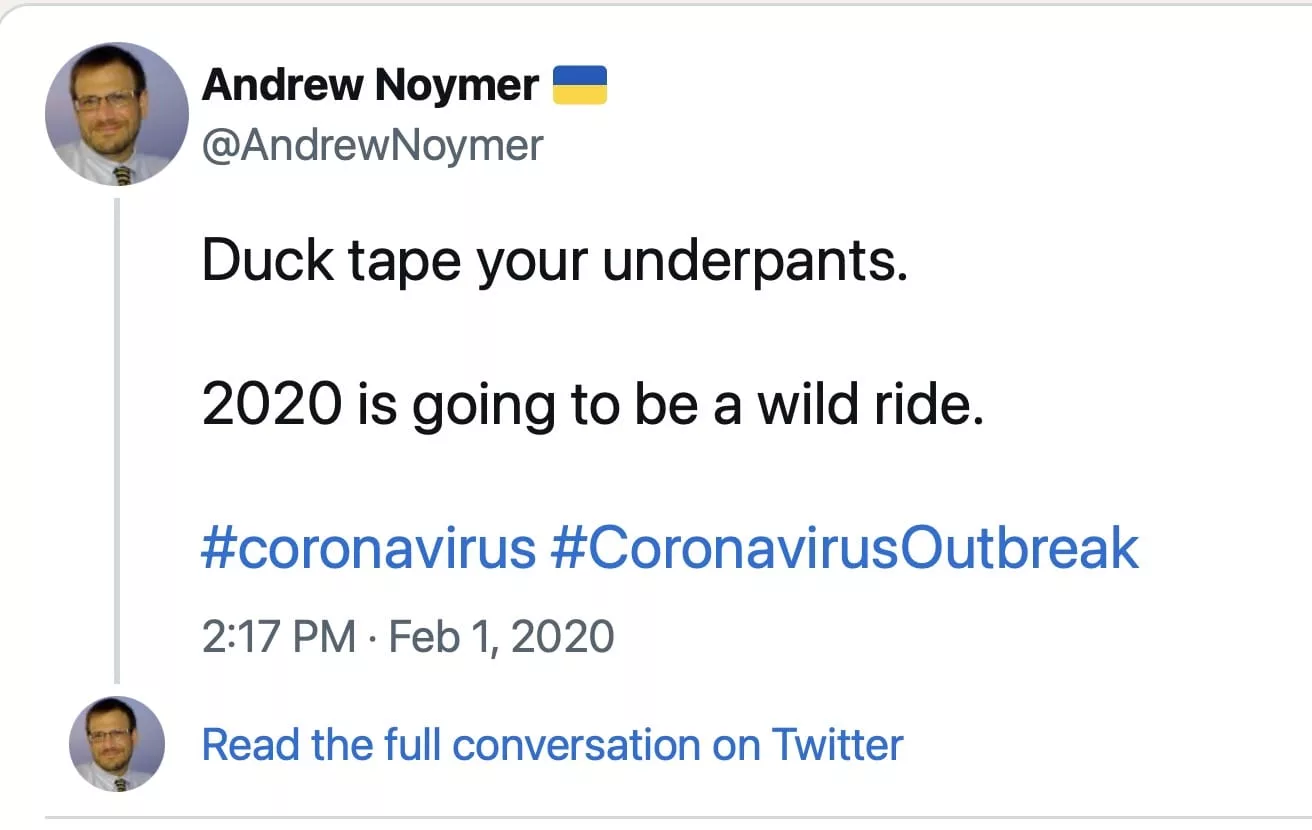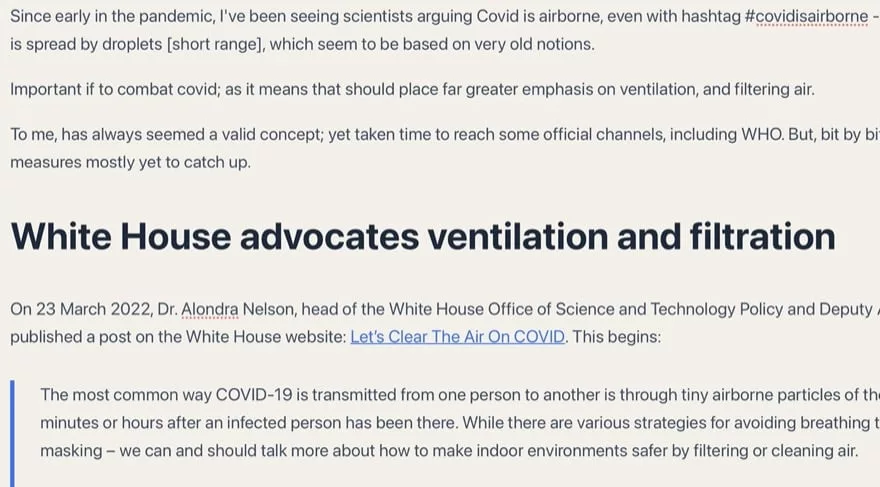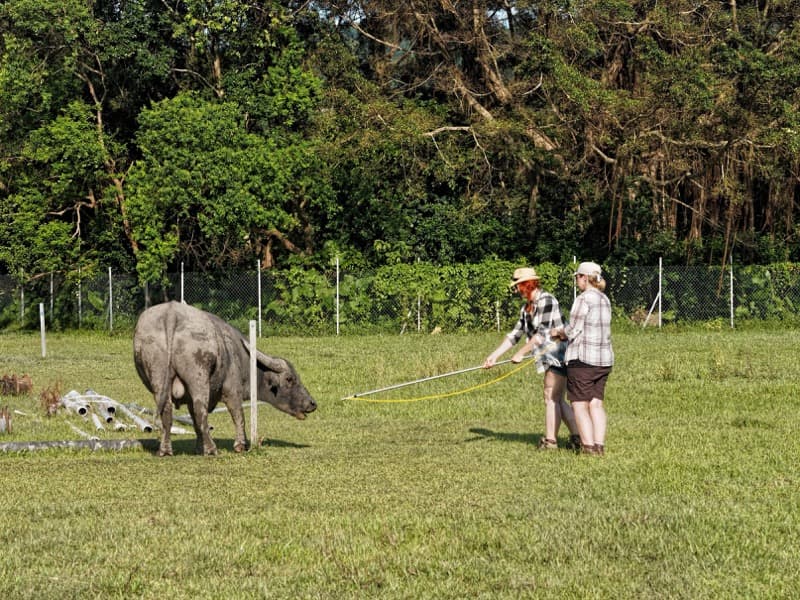If only you and I were dogs or rabbits – how much easier this column might be to write! For in advising a scientific approach to dieting, I could advise “Eat plenty of red meat, and gnaw bones at times”, or “Keep munching the grass, along with an occasional carrot”.
Yet we’re omnivores, and whilst this means we can thrive on a variety of diets, it also makes it very tough or even impossible to recommend an ideal human diet. Clearly, though, there is something very wrong with typical modern diets, since an obesity epidemic is sweeping the world. According to the World Health Organization, worldwide obesity has nearly doubled since 1980, and by 2008 more than 10 percent of the world’s adult population were obese – with a body mass index (BMI: weight in kilograms divided by the square of height in metres) of at least 30.
Overweight and obesity are now the fifth leading risk for global deaths, from diseases such as stroke, heart disease and some cancers. The health risks plus the desire to look better lead many people to aim to lose weight, albeit you shouldn’t overdo this, given recent research found that being excessively thin means more chance of dying than being overweight.
The death in 2014 of 25-year old British socialite Peaches Geldof was thought to have served as an example of how extreme dieting can prove fatal [though inquest found she died of a heroin overdose]. She had described shedding weight through “juicing” – surviving for a month at a time on nothing but vegetable juice. In response, Cath Collins, a spokeswoman for the British Dietetic Association (BDA), told The Sun newspaper: “Peaches joins a long line of celebs who are brain dead when it comes to nutrition,” and perhaps prophetically warned, “’Peaches is at high risk of electrolyte abnormalities which could lead to acute cardiac arrest.”
The BDA is highly critical of fad diets, even publishing an annual list of the Top 5 Worst Celebrity Diets to Avoid. The latest number one was the clearly crazy Breatharian Diet, in which people can supposedly live on fresh air alone. Others included a gluten-free diet, never mind whether you actually have trouble with gluten, along with the protein-heavy Dukan Diet, for which even founder Pierre Dukan warns there are issues including lack of energy, constipation, need for extra vitamins and minerals, and bad breath.
“The simple fact is, there is no ‘wonder diet’ just as there are no ‘super foods’,” noted Sian Porter, consultant dietitian for the BDA.
There is, however, an evidently villainous category of food ingredients: artificial trans fatty acids, or trans fats. These are created by converting cheap liquid vegetable oils into shortening and margarines, which are semi-solid at room temperature, have long shelf-lives, and withstand repeated heating. While these qualities endeared them to the food industry, their consumption has been associated with health problems ranging from cardiovascular disease, through infertility, to Alzheimer’s disease. As a result, their use may be banned in the US, where health officials estimate their elimination could prevent 20,000 heart attacks a year. In Hong Kong, there is mandatory labelling if they are present in food.
The trans fats had often taken over the culinary roles of natural saturated fats, which are found in meat and dairy products. These have long been considered unhealthier than the unsaturated fatty acids of fish, nuts and vegetable oils, yet in March researchers published an assessment of 72 studies, and concluded there was little difference in the risk of heart disease or other cardiac events. Despite the conclusions being swiftly criticised, the notion of artificial fats bad, natural fats not so bad, remains.
Paleo diet championed by celebs and pilloried by scientists
“Aha!” you might exclaim. “We should all eat like cave men and women, and lead long, vigorous lives just as our distant ancestors did, with rippling bodies tuned like racing cars.”
Not only does this seem a wonderfully romantic notion, it has also led to Paleo dieting, with books published and online information abounding. But what does science say?
A few small-scale studies indicate that there are indeed benefits from eating unprocessed foods including meat, fish, fruit and vegetables, but without dairy products or grains. The most recent of these appeared this month, and found that over a two-year period, the women who followed a Paleo diet lost significantly more weight in six months than those on a traditional low-fat diet, though there was little difference in weight loss by the end of the study.
Unsurprisingly, the Paleo Diet is championed by several celebrities, and pilloried by some scientists. A scathing article in Scientific American noted that we have changed genetically since Palaeolithic times, such as by developing lactose tolerance in response to eating dairy products. Then, evidence shows our ancestors did suffer cardiovascular problems, and few lived beyond 40. Added to which is the difficulty in determining diet compositions, especially given modern peoples depending on wild foods range from South American hunter-gatherers who constantly complain of hunger, to Inuit relying on seals and other sea mammals.
Nor have we stopped evolving, or become identical when it comes to responses to food. Research published in Nature Genetics last month found that people vary in the number of copies of a gene for producing an enzyme to help dissolve starch. This may have resulted from a shift towards eating more starch, and people with more copies of the gene appear significantly less prone to obesity.
Also last month, an assessment of the Health Survey for England found that people eating seven or more portions of fruit and vegetables a day were 42 percent less likely to die than those eating one portion, with fresh vegetables conferring the strongest health effect. Some writers promptly scoffed at the impracticality of eating so many portions, yet for a role model you might consider Australian cricketer Peter Siddle, a vegan who devours up to 20 bananas each day.
If the thought of eating more like a ravenous oversize rabbit than a disciplined dog seems daunting, science does have comforting news as Easter approaches. Experiments with mice fed on high fat diets showed that an antioxidant in non-processed dark chocolate helped keep their weight down whilst improving glucose tolerance, which could counter diabetes. Another new study discovered that some stomach bacteria ferment dark chocolate, creating compounds that lessen inflammation of cardiovascular tissue, thus reducing the risk of stroke.
Perhaps, then, you can include a little chocolate in your quest for a healthy diet. But remember that celebrities are entertainers, so look to science for the skinny on what’s really good or bad for us.
Early warnings of climate change
While climate change resulting from human activities might seem a new-fangled concept, there have been on-point predictions dating back many years.…
Ignoring Science Makes Global Climate Disaster as Inevitable as Titanic Submarine Implosion
Climate change has been prominent in worldwide news this summer (2023), notably as we have just lived through the hottest week…
Have you been bullied into health? Fear, quackery and Covid
So here we are with our modern-day wonder, the internet – where even with a smartphone, you can search for and…
Never mind the antimask-o-sphere. Science shows face masks help reduce Covid spread
Just had one of those silly Twitter “conversations” with someone who had position so fixed, impossible to change with facts. Yeah,…
A Covid scrapbook: snapshots from the crazy pandemic
I’ve read accounts of the Spanish Flu, which was the last major pandemic, mainly in 1918 [so over and done with…
Highly pathogenic bird flu variants mostly evolve in intensive poultry farming
Highly pathogenic bird flu variants evolve from regular, low pathogenic, bird flus, within intensive poultry farming.
Keep Your Underpants Duck Taped and Air Clean as Covid Wild Ride Continues
We’ve learned a lot about Covid, even developing vaccines. Yet Covid remains an issue, no matter how much we might wish…
Covid is airborne so ventilation and air filtration are important
Since early in the pandemic, I’ve been seeing scientists arguing Covid is airborne, even with hashtag #covidisairborne – including to counter…
Long Covid – info and links indicating major impact
Evidence is snowballing that Long Covid is also a serious issue, even affecting people in whom the disease initially appeared mild.
Perhaps Covid arose through lab leak of tweaked bat Coronavirus
Maybe humans tweaked bat coronaviruses in gain of function experiments, inadvertently creating Covid thro lab leak.
The Covid Conundrum: Endless Lockdowns, Let It Rip … or What?
Covid is airborne, which means that much as unprotected sex is a risk for HIV, unprotected breathing might result in Covid.
Science shows Covid including Omicron is Really Not the Flu
Some of the science showing Covid including Omicron is a huge issue; and one that looks set to be with us…
“Alarmist” Covid predictions outperform Covid deniers’ soothsaying
The disinfo downplaying Covid is often from rightwing, mainly money-minded folks who perhaps don’t care too much about actual people.
Covid virulence, vaccines and variants
Science can provide some insights into what may happen with Covid, along with ways to limit its impacts.
We’re in the Covid Era for the Long Haul
We’re in this for the long haul, with the virus like a relentless, invisible foe, ready to exploit errors, slip through…
My Strange n Surprising Summer Staycation with Cellulitis
rom quick pricking by unseen marine creature, to intense fever, and hospital stay for an infection deep within the skin.
Covid virulence, vaccines and variants
[Written for South China Morning Post on 6 January 2021] In January last year, as reports were emerging of the new…
The Viral Time Bomb – Pandemic of Our Time
Guan Yi, director of the State Key Laboratory of Emerging Infectious Diseases at Hong Kong University, has extensive experience of viruses;…
From China With Fear: the Wuhan Coronavirus Won’t Kill Us All
As news of Wuhan coronavirus emerges, evolutionary biology suggests potential for a pandemic, not killing high percentage of people.
Fightback Needed as Science and Life Support System Under Attack
Environmentalism is under assault; yet this planet is the only home we have; providing our food, air, water… It’s our life…
Secret World of Hong Kong Water Supply
Hong Kong’s water supply system has been vital to its development as a “world city”.
Hong Kong Belching Buffaloes n Bubbling Paddies and the Mystery Methane Rise
Prof Euan Nisbet leads a science team to Hong Kong in quest to help find why levels of potent greenhouse gas…




















